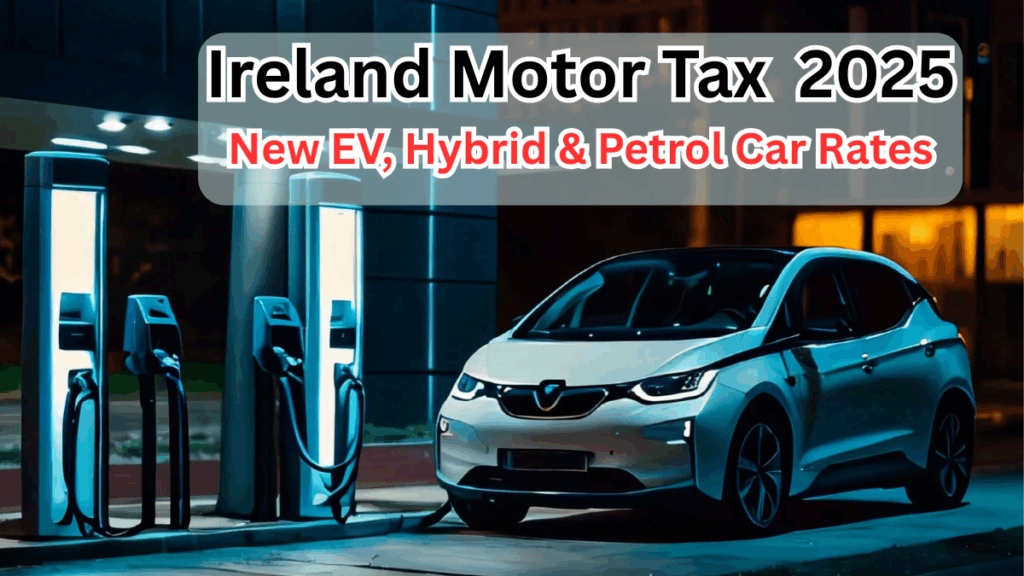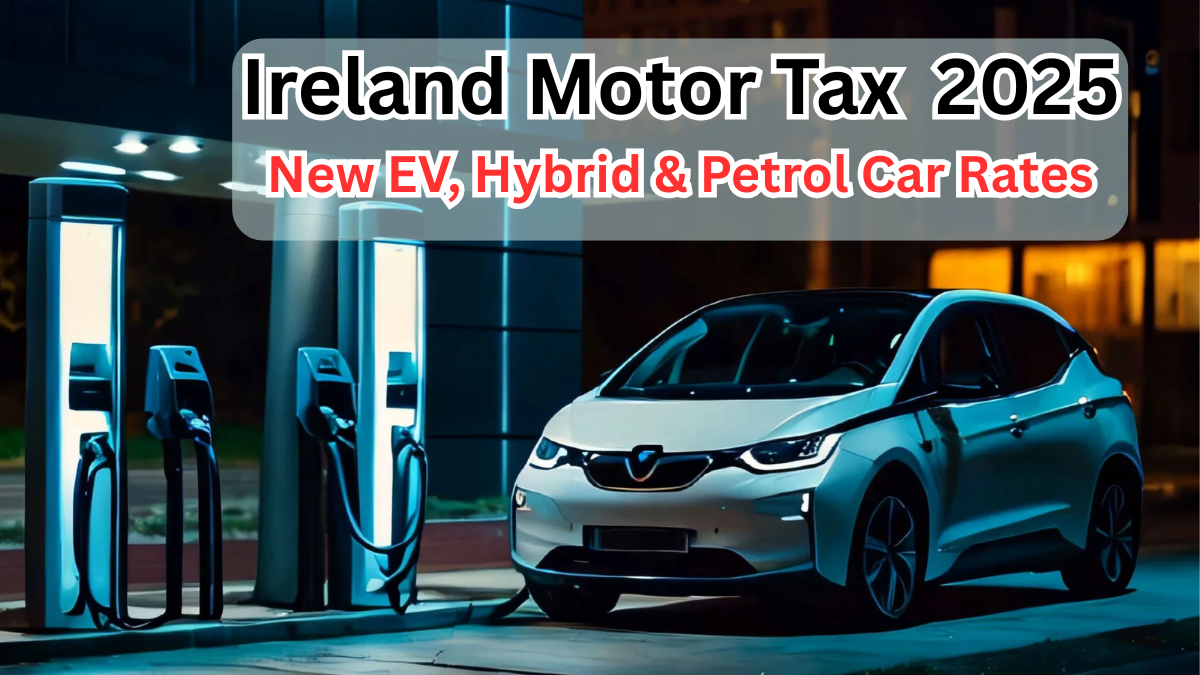As Ireland continues its journey towards a greener future, the 2025 motor tax rates reflect a significant shift in policy. With a focus on reducing emissions and promoting sustainable transportation, understanding the new tax structure is essential for every driver.

Understanding Ireland’s Motor Tax System
Ireland’s motor tax system is designed to encourage environmentally friendly driving habits. Here’s how it works:
-
Electric Vehicles (EVs): Benefit from the lowest tax rates due to zero emissions.
-
Hybrid Vehicles: Enjoy reduced rates as they produce fewer emissions than traditional petrol or diesel cars.
-
Petrol & Diesel Vehicles: Taxed based on engine size and CO₂ emissions, with higher rates for higher emissions.
2025 Motor Tax Rates by Vehicle Type
| Vehicle Type | Emissions (g/km) | Annual Tax (€) | Half-Year (€) | Quarter (€) | Arrears (per Month) (€) |
|---|---|---|---|---|---|
| Electric Vehicles | 0 | 120 | 66 | 33 | 12 |
| Hybrid Vehicles | 70 | 150 | 83 | 42 | 15 |
| Petrol Vehicles | 100 | 180 | 99 | 50 | 18 |
| Diesel Vehicles | 150 | 280 | 155 | 79 | 28 |
Note: Rates are indicative and may vary based on specific vehicle models and emissions standards.
EV vs Petrol: A Comparative Overview
When choosing between an EV and a petrol vehicle, consider the following:
-
Environmental Impact: EVs produce zero tailpipe emissions, while petrol vehicles emit CO₂ and other pollutants.
-
Running Costs: EVs benefit from lower energy costs and reduced maintenance expenses.
-
Tax Benefits: EVs enjoy the lowest motor tax rates, whereas petrol vehicles are taxed based on emissions.
-
Government Incentives: EVs are eligible for various grants and incentives, making them more affordable.
Why Choose an Electric Vehicle?
Opting for an EV in 2025 offers several advantages:
-
Lower Motor Tax: At €120 annually, EVs have the lowest motor tax rate.
-
Reduced Running Costs: EVs are more energy-efficient, leading to savings on fuel.
-
Government Grants: Up to €5,000 in grants for EVs with an Open Market Selling Price (OMSP) up to €40,000.
-
Environmental Benefits: Contribute to reducing Ireland’s carbon footprint.
Tips for Transitioning to Electric
Making the switch to an EV can be seamless with these tips:
-
Home Charging: Install a home charging point to take advantage of off-peak electricity rates.
-
Explore Grants: Check eligibility for government grants to reduce upfront costs.
-
Plan Routes: Use EV route planners to ensure access to charging stations during trips.
-
Maintain Your EV: Regular maintenance ensures optimal performance and longevity.
FAQs
1. What is the motor tax rate for an electric vehicle in Ireland?
Electric vehicles are taxed at €120 annually, the lowest rate available.
2. Are there any grants available for purchasing an electric vehicle?
Yes, grants up to €5,000 are available for EVs with an OMSP up to €40,000.
3. How does the motor tax for petrol vehicles compare to EVs?
Petrol vehicles are taxed based on emissions, with rates starting at €180 annually, higher than the €120 for EVs.
4. Can I install a home charging point for my EV?
Yes, installing a home charging point is recommended and may qualify you for additional grants.
Conclusion
Ireland’s Motor Tax 2025 framework encourages a shift towards sustainable transportation. With lower tax rates, government incentives, and environmental benefits, electric vehicles present a compelling choice for Irish drivers.
Click here to learn more
